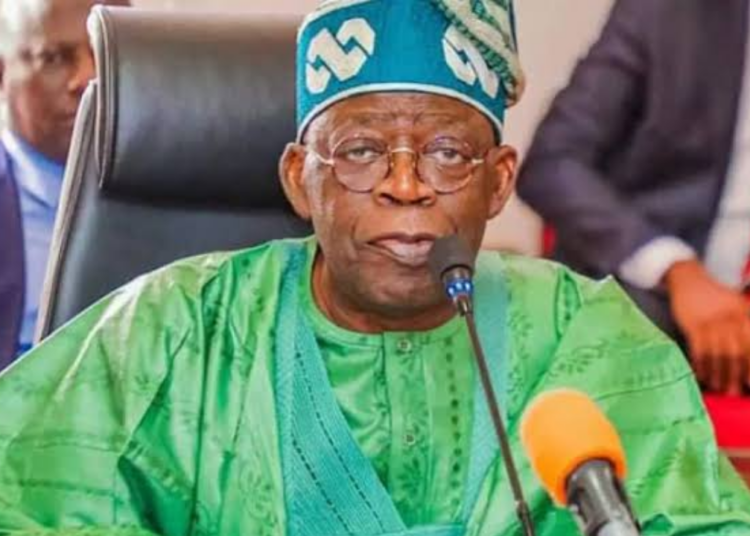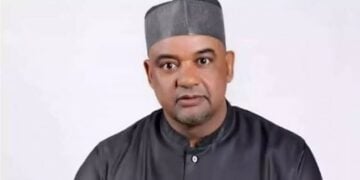The Nigerian textile industry has failed to pick up in terms of operations despite over $1.18billion (N500 billion based on the prevailing exchange rates during the periods of intervention) pumped into the sector, LEADERSHIP Sunday investigations has revealed.
The President Bola Ahmed Tinubu administration, like previous governments, is being confronted with the challenges of reviving the textile industry, particularly in Northern Nigeria where the sector has the potential to create jobs and mitigate problems of insecurity.
The global textile industry is valued at $920billion and is expected to grow to $1.23trillion by 2024, with China, the United States of America, the European Union and India dominating the market.
Other players include Turkey, South Korea, Taiwan and Pakistan.
In 2022, Nigeria imported textile products valued at N365billion, roughly 70 percent of the N500 billion government intervention to keep the industry afloat over a 30-year period, according to public information from government institutions, including the Central Bank of Nigeria (CBN).
Industry observers have blamed the failure of textile companies to remain competitive against imports from countries like China and India on insufficient power supply, government policy flip-flop, smuggling of imported textiles and insecurity.
Nevertheless, relevant stakeholders in the industry are yet again urging President Tinubu to see to the revival of the textile industry in the country as part of measures that will help address insecurity and unemployment.
Speaking with LEADERSHIP Sunday, the president of the National Union of Textile Garment and Tailoring Workers of Nigeria (NUTGTWN), Comrade John Adaji highlighted their expectations from President Tinubu’s administration on textile industries.
He said successive administrations since the inception of the new democratic dispensation in 1999 have demonstrated interest in reviving the labour intensive textile industry in particular and the manufacturing sector in general.
Also speaking, former minister of State and chairman, Arewa Consultative Forum (ACF), Architect Gabriel Aduku, said reviving the textile industries will not only create employment opportunities for teaming unemployed youths in the country, but will also reduce to its barest minimum rate of insecurity in the country.
]He stressed that Nigeria is blessed with opportunities that will address its challenges, adding that the government only requires the political will to fix it.
Apart from the textile industry, the Ajoakuta steel, he said, is another area that requires proper resuscitation for optimum advantages.
The interest of previous governments in the textile industry dates back to the Olusegun Obasanjo administration (1999-2007), which launched a N70billion Textile Development Fund to revive the ailing industry.
This was followed by a N100billion Cotton, Textile and Garment Fund during the tenure of the Musa Yar’Adua/Goodluck Jonathan government (2007-2015).
Similarly, the Muhammadu Buhari government has launched at least three textile industry intervention funds since 2015 when he became president, including a N225billion fund, N50billion revival fund and another N19 billion cotton fund.
Former President Umaru Musa Yar’Adua also made spirited efforts to revive the ailing textile industry in 2009 when he approved the setting up of another N100 billion cotton, textile and garment fund to enable key players to have access to cheap funds.
According to the Bank of Industry (BoI) which managed the fund, the majority of the funds were disbursed. However, there is no tangible improvement in the dwindling fortunes of the textile sector.
In December 2012, the administration of former President Goodluck Jonathan also injected another N60billion into the nation’s textile industry to revitalise the sector. About a year later, another N40billion was pumped into the sector by the Bank of Industry.
As promised, the president made the CBN to release a N50 billion special mechanism fund in 2020 to revive the ailing industry.
According to the CBN, the funds were to be administered by the Bank of Industry at 4.5 per cent interest rate, using any of the CBN-approved non-interest instruments for refinancing of projects, long-term financing for the acquisition of plant and machinery and working capital for the beneficiaries.
Beneficiaries can access a maximum amount of N2billion (a single obligor for new facilities) and N1 billion for refinancing. The seed fund, a one-off intervention, will terminate on December 31, 2025.
Speaking with LEADERSHIP Sunday, Comrade John Adaji of NUTGTWN acknowledged how former President Obasanjo, the late President Yar’Adua and former President Goodluck Jonathan had put in place a number of policy measures to resuscitate the textile industry and promote local manufacturing as part of efforts to transform the industrial sector, create mass decent employment and diversify the nation’s economy, but all in vain.
He said, “Significantly, the Nigeria Industrial Revolution Plan (NIRP) and the Cotton Textile and Garment (CTG) Policy under former President Goodluck Jonathan and President Muhammed Buhari raised a lot of hope for industrial revival. However, as laudable as some of these measures, there was a huge gap between policy pronouncement and implementation.
“With all the acknowledged efforts of the past governments before President Buhari, they never made revival of textiles a campaign promise as President Muhammadu Buhari did. President Buhari upon assumption of office in 2015 made the famous promise that jobs will be created by his administration as part of efforts to revive the economy.
“He assured that his administration would resuscitate the textile industry, re-open the closed ones and attract new investments to reduce unemployment. The President reiterated his commitment to revive the industry during the historic courtesy call on him by the leadership of the union and textile employers on Tuesday July 23rd 2019 at the Aso Rock Villa, Abuja.”
Textile manufacturers and indeed the union, he said, were optimistic that President Buhari administration would consolidate on the few gains of the past, avoid policy mistakes of the past, help to revive all closed textile factories and attract new investment consistent with the campaign promise.
Stakeholders, Adaji said, acknowledge some initiatives by the Buhari-led government to resuscitate the textile industry within the context of the Cotton, Textile and Garment (CTG) policy, adding that they were however not effectively implemented to achieve the desired result, Adaji said.
He continued: “The situation is that the Nigeria textile sector was better in 2015 than it was at the end of the administration of President Muhammadu Buhari in May 2023. Many textile companies have been forced to close down in Kano, Kaduna and Lagos with over 15,000 direct job losses. Nichemtex Nigeria Limited based in Ikorodu Lagos with over 6,000 workers is among the closed factories.
“The importance of industry cannot be over-emphasized. The key to real transformation and economic recovery lies in manufacturing and promotion of small and medium scale enterprises. The cotton, textile, garment sector in particular is crucial for strengthening economic recovery, boosting employment and creating wealth for Nigerians. As a matter of fact, worldwide, textile being the engine for industrialization has always been jealously protected by all governments.
“Unrestrained importation of fake, counterfeit and substandard textile products is a major problem facing the Nigerian textile industry. Today, over 90 per cent of textile products in Nigerian markets are smuggled or imported into the country. Other key challenges are unstable and high cost of electricity, essential raw materials, high exchange rate, devaluation of the Naira, low patronage and absence of clear industrial policy among others”.
On expectations from the new administration, Comrade Adaji said, “We are hopeful that President Bola Ahmed Tinubu led government will give the revival of the labour intensive textile industry the urgent attention it requires. We hope to partner with the new administration with a view of generating ideas for sustainable industrial revival, wealth creation and mass decent employment”.











